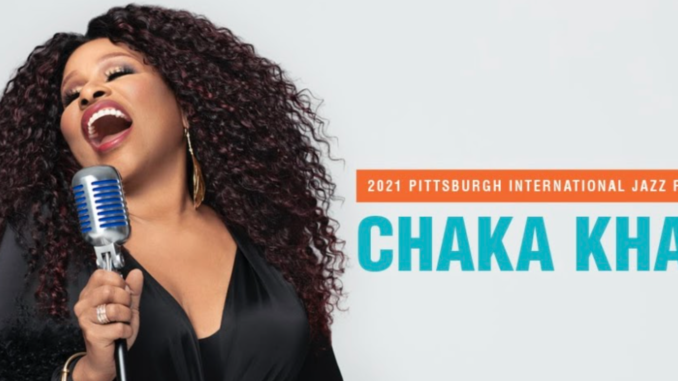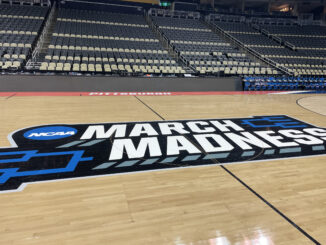
Emma Polen | layout editor
Sept. 23, 2021
Last weekend, Friday Sept. 17 through Sunday Sept. 19, Pittsburgh hosted the International Jazz Festival.
A number of different jazz artists performed over the course of the three-day festival, including Chaka Khan, who kicked off the event on Friday night with her performance at the Benedum Center. In attendance were also Jazz Me a Horn, Kenny Garrett and Jeff “Tain” Watts who grew up in Pittsburgh. Among the artists performing, Marcus Miller was there. In all 11 years of the PIJF, senior music education major Spencer McNeill does not remember a year the experienced bassist was not performing.
Many of these players are well-known musicians in the jazz community. However, McNeill noted that the Pittsburgh jazz community is significant in itself.
“It’s surprisingly large for a smaller city like Pittsburgh,” he said. “There’s also a lot less competition compared to a larger city like New York.”
McNeill, a producer for student-led band FlowKids, was also a performer and attendee all three days of the event. He played saxophone for Fusion Illusion, a band who opened for Chaka Khan at the VIP reception at the Benedum.
After hearing them play during the VIP reception, the organizer of the event prompted them to play next year as headliners.
Fusion Illusion also played Saturday and Sunday during the festival’s activities inside the Highmark Stadium.
McNeill said that this was a more casual performance compared to Friday night, but the audience was “still plenty appreciative” of the music, being that much of the audience was “a part of the Pittsburgh jazz scene.”
“There is validation in the art when listeners are receptive to the music,” said McNeill. “I feel really seen when you’re engaged in high art, and the audience is right there with you.”
This is a significant year for the festival since this is the first city jazz event Pittsburgh has hosted since the pandemic began. McNeill has played at previous festivals, and noticed a few significant differences that marked this year’s PIJF—for better and for worse.
The biggest change, according to McNeill, was that the festival took place in the Highmark Stadium. Usually the event occurs in the streets of the Cultural District.
Along with a new location came additional challenges as well. All visitors and artists had to have proof of vaccination or of a recent negative Covid-19 test before entering the event.
With the Covid-19 restrictions also came the difficulty of paying for the event. Tickets started at $55 for one day of field access at this year’s PIJF.
This is the first year the host, Citizen’s Bank, has charged audience members to listen to the music. Every year prior, the event has been free to everyone and taken place in a public space in the Cultural District.
McNeill was a performing artist, which granted him a free ticket, but he still shared his opinion on the new method of making people pay to enter: “Me personally, I don’t like it at all.”
He explained how the typical atmosphere of the PIJF is, “Just a Pittsburgh vibe. Why not have it in the streets of Pittsburgh? Really, what is more Pittsburgh than Pittsburgh?”
With the addition of the money requirement for tickets, McNeill also noticed a difference in the demographic in attendance.
“There were barely any younger people,” he said.
Station Square is certainly further away than the cultural district for many students in Pittsburgh. With the issue of money and transportation, many young people could not make the effort to go to the event.
In addition, the Pittsburgh Jazz Festival usually hosts a number of food trucks; however, this year the only food options were from the Riverhound Stadium vendors (which, according to McNeill, takes away from the various cultural food options that Pittsburgh has to offer).
Despite these changes from Covid-19, Pittsburgh’s jazz community still took advantage of this opportunity to celebrate their craft.
For those wanting to get into Pittsburgh’s jazz community, there are many opportunities to do so around the city. WZUM is Pittsburgh’s jazz station and always shares upcoming city jazz events which take place almost every night in different venues across Pittsburgh.
“The Pittsburgh jazz scene is very welcoming,” McNeill said.




